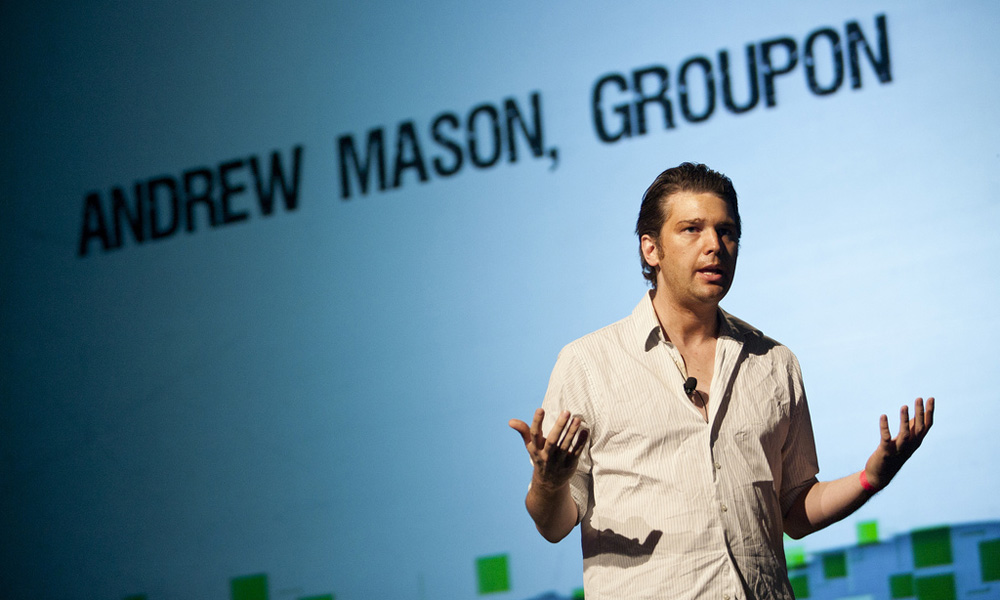
Lessons from an Ouster: Where Groupon’s Andrew Mason Went Wrong
Once the web's fastest-growing company, Groupon flew a little too close to the sun, leading to the ouster of its founder and CEO on Thursday. What can you learn from his mistakes?
There are highs, there are lows, and then there’s what Andrew Mason went though at Groupon.
For nearly two years, the company—and, by extension, Mason—was unstoppable, becoming a household name in record time and, in 2010, taking the title of the fastest-growing company in web history.
But after nearly two years of struggle, Mason’s gone from the company he launched and helped expand to great heights.
He seemed simultaneously alert and exhausted, in the sense that you would be if you’d been pursued by a bear and turned to find it gone.
Association leaders could learn much from Andrew Mason’s departure—including, as it turns out, a little humility. More details:
Where it fell apart: When Groupon went public in 2011, Mason’s success in building the company started to falter under the pressure of immense expectations. Among the issues Groupon faced involved businesses unable to handle the demand Groupons created, an extremely weak showing on the public stock market, structural weaknesses in the company’s business model partly due to its once-heavy marketing spend, a controversy over a nonstandard accounting method, and an overall weakening of the industry at large (though at least one association is trying to offset that). In the middle of all this was Mason, who faced public scrutiny for bizarre moments that seemed to suggest he might be in over his head—including an infamous interview where he gave a reporter a “death stare” rather than answer a difficult question about his company’s stock offering. “Time and again, Mason, now 32, has made headlines not for his surehanded stewardship of Groupon but for acting like he’d rather be writing for Saturday Night Live,” Forbes’ Jeff Bercovici wrote.
Nearing the end: A month before Mason left the company, he talked with former New York Observer editor Elizabeth Spiers on the company’s direction. In the interview published in Fast Company this week, she found an often defensive leader who, when asked whether he regretted going public, he responded: “I feel like the only reason you could be asking me that question is because you think I’m stupid or because you’re trying to see if I’m going to lie to you.” But beyond that, she noted that he seemed worn out by his company’s troubles. “He seemed simultaneously alert and exhausted, in the sense that you would be if you’d been pursued by a bear and turned to find it gone,” she explained. She remarked that she thought that the end may be near for Mason. She was right.
Leaving with grace: One particularly humanizing thing that Mason did as he was forced out of his company was publicly release a final letter to his employees in which, while taking the blame for the company’s troubles, he shared details and all-around goofiness that reminded people what made him compelling in the first place. “For those who are concerned about me, please don’t be—I love Groupon, and I’m terribly proud of what we’ve created. I’m OK with having failed at this part of the journey,” he wrote. “If Groupon was Battletoads, it would be like I made it all the way to the Terra Tubes without dying on my first ever play through. I am so lucky to have had the opportunity to take the company this far with all of you.” The letter was highly regarded by members of the press.
Did he deserve a firing? Not everyone is convinced. While entrepreneur Mark Rogowsky argues that Groupon had significant issues, “given that progress is being made and that the stock tanked a long while ago, it’s not really clear why firing Mason was the right decision. This is especially true given that there is no successor ready to step in.” And one noted tech consultant, Rakesh Agrawal, argued on Twitter that the move was “largely symbolic” and doesn’t deal with deeper structural issues.
If you were in Andrew Mason’s shoes, what would you have done differently? And how can boards best handle leaders proving ineffective in solving problems?
Leave us your thoughts in the comments.
(Photo by TechCrunch/Thinkstock)






Comments